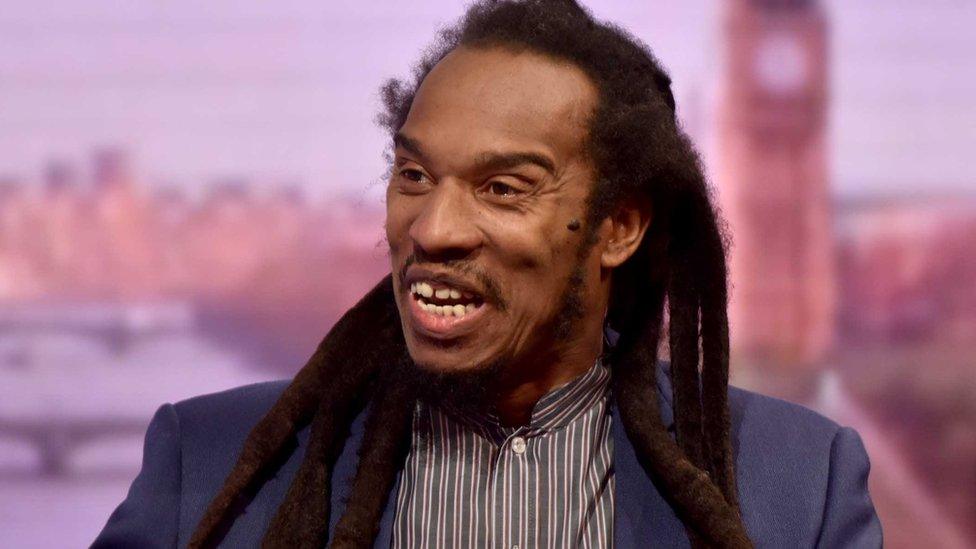Bristol's reggae sound system tapes digitised to preserve history
- Published
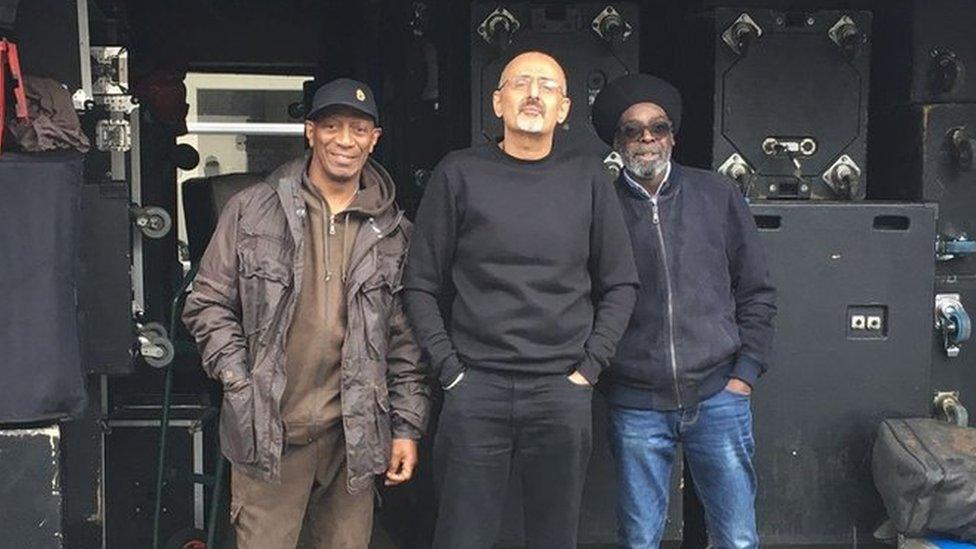
Ashish Joshi (centre) with 'Snoopy' (left), Unique Star Sound System and 'Skyjuice' (right) Enterprise sound system
A reggae enthusiast has said digitising and publishing live recordings of sound systems from the 1970s and 1980s will help preserve the genre's history.
The sound systems movement saw huge banks of speakers built into houses and on the streets in St Pauls, Bristol.
Ashish Joshi has been collecting "dozens" of tapes in Bristol and other cities before they "disappear forever".
He said videos and audio tapes allow people to see and hear the music in its heyday and "feel what it was like".
The reggae sound systems movement is understood to have influenced different artists including locals Ronnie Size and Massive Attack.
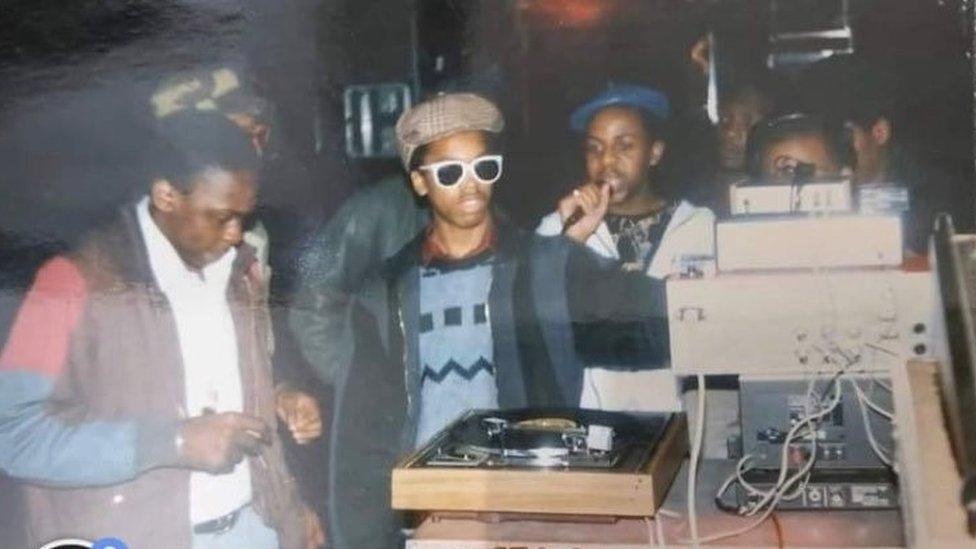
Mr Joshi said the sounds tapes were a staple diet for Reggae fans
"As it was developing in the 70s, 80s and 90s, the music was so special, the music came from the heart and a lot of that music you don't hear nowadays," Mr Joshi said.
"It comes from centuries of oppression and was basically put into an audio art form that people could feel."
He said it is one thing filming veterans from back in the day, and them telling you how great it was, but young people can appreciate what the vibes were like if they can hear the music and be virtually transported back in time.
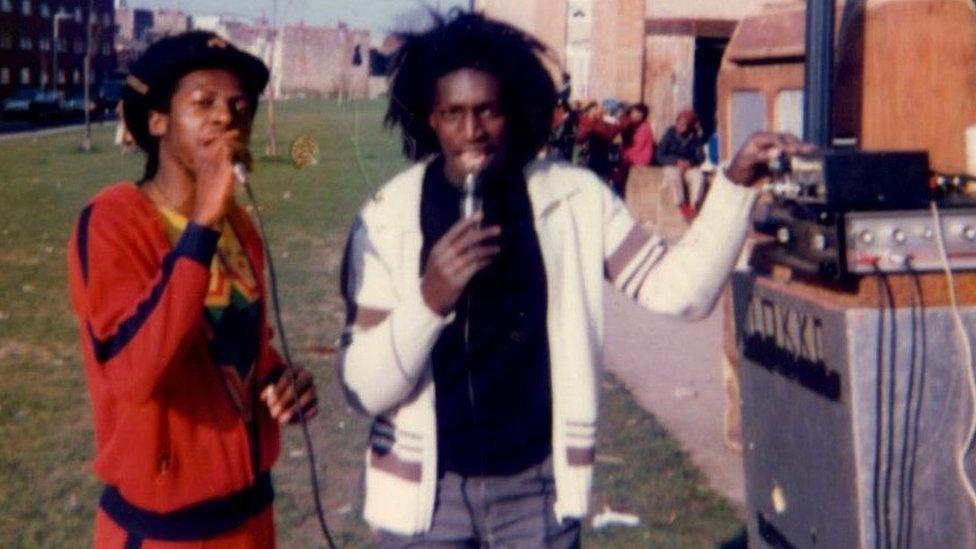
Mr Joshi said it is vital young people get to hear the original tapes
With mainstream radio not playing much reggae music, and before the advent of Bristol's Black pirate radio stations during the latter part of the 1980s, Mr Joshi said reggae sound tapes were an important source of keeping up to date with the latest releases.
"They were basically live recordings of reggae sound system dances on tapes, recorded by owners of the sound system and captured the atmosphere, sounds, dance and music played at functions," he added.
"You can hear the sound system guys talking to the crowd as well as introducing the tunes being played and also rapping over the tunes… it is an authentic experience of reggae music at that time."
Tapes were copied and passed between friends and families, offering a cheap way of hearing the latest Reggae music at a time when unemployment was high in the Black community, Mr Joshi said.
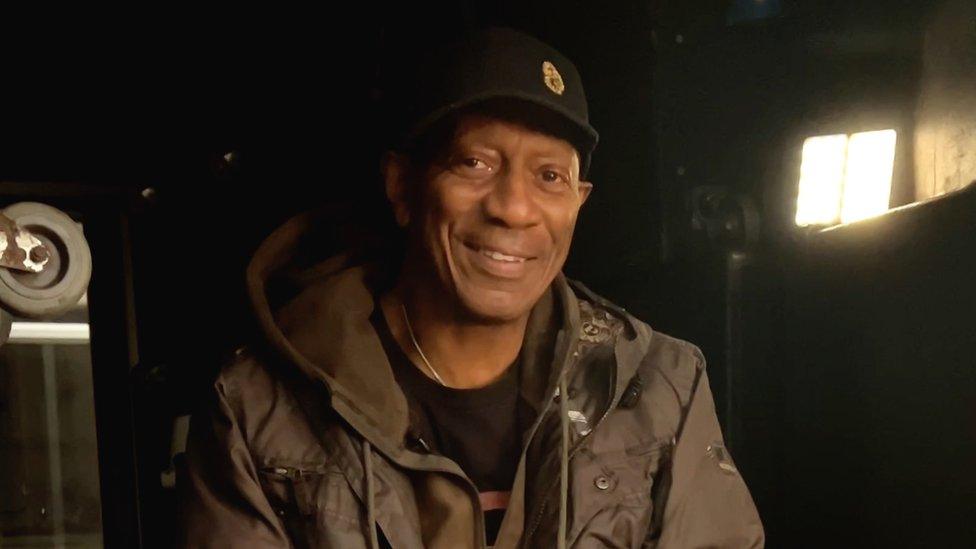
DJ Snoopy said the reggae sound system culture gave him a focus and helped keep him out of trouble
DJ, operator and mic man Snoopy said the movement helped him through life and "kept me out of trouble".
He played in the city in 1976 after seeing "one on my cousins with a speaker in his hand… [and I knew] I just wanted to get involved".
"Bristol was the talk of the world," he said. "You had the Bamboo club and wherever people were in the country they all wanted to come to Bristol for the sounds and the Bamboo club.
"Just walking into St Paul's… [was] pure energy. It was like being home. Like your motherland. The beat of the drum, the tone and the chorus… music was a message and it kept people on the straight and narrow," he added.
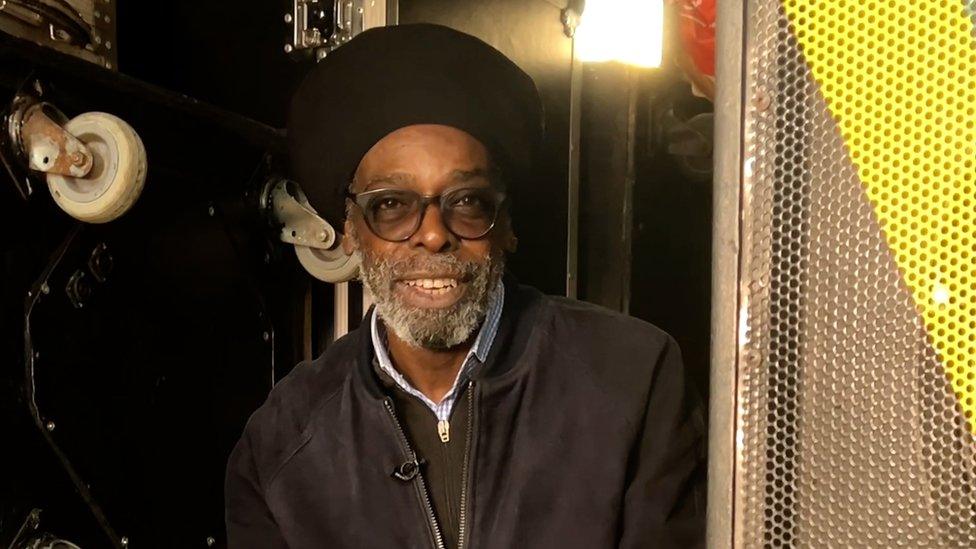
Skyjuice said hearing the music in the 80s was like being on a journey "it's like freedom"
DJ Skyjuice said sound systems are a "mobile music discotheque and about the hype, the amplitude of the music we're playing and the vibe".
"It's not just how it sounds, it moves you emotionally. You're on a journey... it's like freedom."
With about 800-1,000 watts in one speaker, that is banging out the bass notes, bottom notes, he said.
"Most stereos aren't going to give you what a sound system is giving you. It gets people in a funny way. It's excitement," he said.
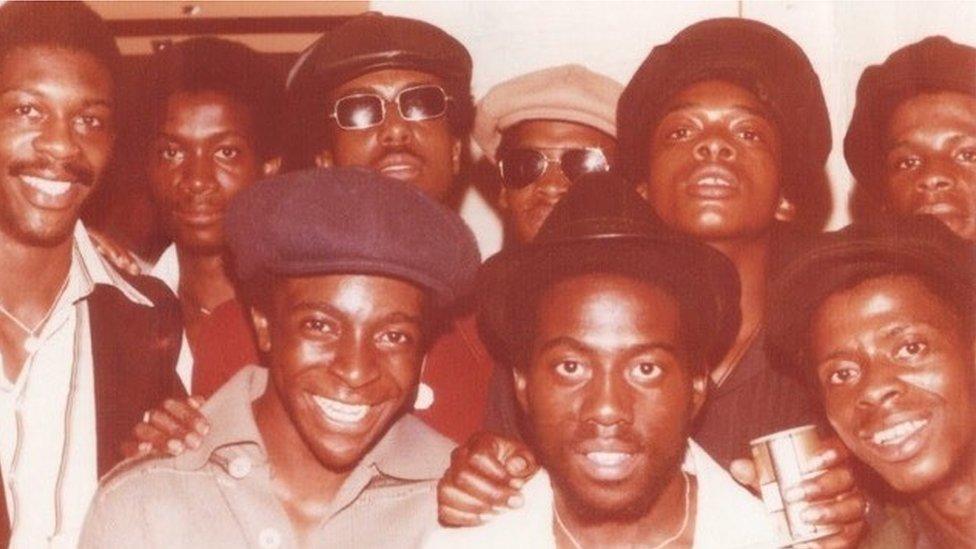
Mr Joshi wants young people to experience what the atmosphere and vibes were like back during the heyday of Reggae sound system culture
Mr Joshi, who has self-funded collecting, digitising and publishing the sound systems, said: "Sadly a lot of these sound tapes have been thrown away since many people haven't got the equipment to play them anymore.
"So if I hear there's a tape someone needs restoring or putting on digital file or video, I'm there like a shot.
"Reggae sound system was the beginning. The guys that were into Drum and Bass and the rave scene and house music all got their roots in the reggae sound systems [and] people like Stormzy.
"So the sound systems are an important historical record of reggae sound system culture in the UK," he added.

Follow BBC West on Facebook, external, X, external and Instagram, external. Send your story ideas to: bristol@bbc.co.uk
- Published8 December 2023
